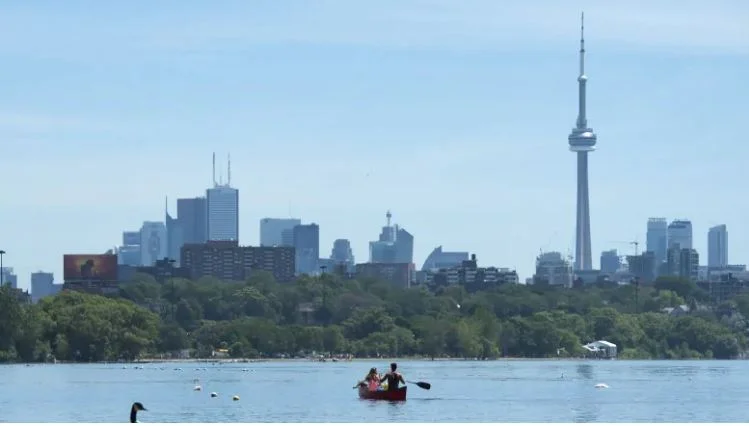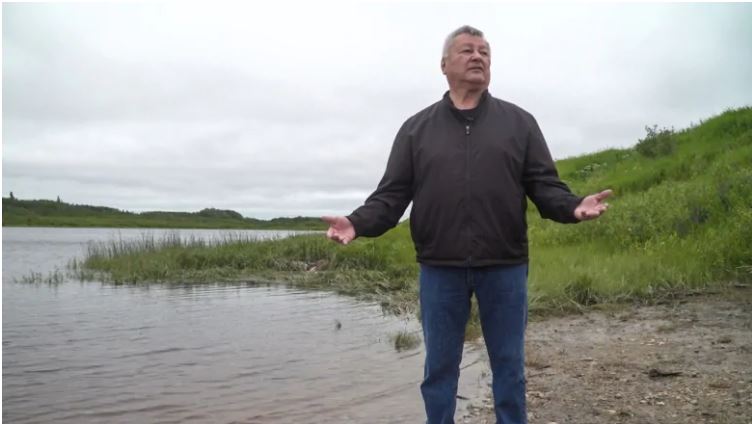At last report, the Ohio Emergency Management Agency had declared that successful containment of the spilled chemicals meant no further derailment-related die-offs were expected, and that “live fish were returning to Leslie Run,” the nearest small waterway. But local residents remain concerned about the health of waterways. Many worry that toxins may have settled into sediments, posing a persistent danger to benthic organisms (plants and animals at the bottom of the waterway). Those toxins are ready to be released at the slightest disturbance—as simple as a dog chasing a stick, or a wading child.
Amidst the climate crisis, the case for hope is getting stronger
Are you hopeful that the world will soon turn the corner on climate change? The scientific evidence is clear — we have to stop filling our atmosphere with polluting gases that are heating our planet. And yet, the emissions from fossil fuels continue to rise unabated. At this very moment, there are industry lobbyists, politicians and media organizations fighting to prevent any government policies or global agreements that threaten growth in oil, gas and coal production.
Why Justin Trudeau’s ‘blue hydrogen’ dream is not really green
While world leaders convene in Sharm el-Sheikh for the 27th United Nations Climate Change Conference, Canadian politicians are hard at work selling dreams of clean green energy to locals and foreigners alike. Though the recent green energy export agreement signed between Prime Minister Justin Trudeau and German Chancellor Olaf Scholz was welcome news in Ottawa as much as Berlin, Canadian taxpayers should be mindful of politicians’ proclivity to overpromise and underdeliver. When it comes to promises of an energy transition powered by Canadian hydrogen, no amount of skepticism is too little.
What if Teenagers Renegotiate the Columbia River Treaty?
You may have heard about the Columbia River Treaty in the news once, or perhaps many times, over the last decade. The Columbia River Treaty is an agreement between Canada and the United States about our shared watershed. It was originally ratified in 1964 with negotiations to “modernize” it ongoing since May 2018. It’s big. It’s complicated. It’s important. It’s confusing.
Alison Gu gets political with her climate fight
I am committed to supporting measures like more tree and native species planting, rain gardens and surface permeability. These all have multiple benefits, including increasing cooling shade during intense heat, flood prevention, and carbon sequestration. I’ve pushed to ensure when possible, these improvements benefit lower-income areas that need them the most, even if it might require a little more support from the city to water and care for the plantings. My goal is to make lives better for Burnaby residents while also mitigating or adapting to climate change. I am also looking forward to using existing levers like zoning to make housing more affordable, and so much more. It is very exciting.
No more excuses: Fix the clean water problem
Clean, safe, reliable water should be available to all people in Canada in this day and age, and yet it isn’t. We have all heard the promises of politicians on the campaign trails, and still, there are many places in this country where there are consistent boil water advisories or just plain water that is unusable for numerous reasons. In 2016, there were 105 communities with long-term drinking water advisories in place, where the water had been unsafe to use or consume for at least a year. By this year, the number of communities without water is 61.
First Nations want federal party co-operation, commitment to clean water
Every Wednesday drinking water is delivered to the home of Dylan Whiteduck, chief of Kitigan Zibi Anishinabeg near Maniwaki, Que. His home, which is just a 90-minute drive from Parliament Hill, used to belong to his grandmother, and for years the water coming from the tap has been unsafe to drink. "All these politicians live on our unceded traditional territory in Ottawa. ... So close to us, [yet] we don't have access to this clean drinking water," said Whiteduck, who partly blamed unsafe levels of uranium in the well water.
What happened when Prime Minister Justin Trudeau visited this (virtual) class
It’s not every day that one of your virtual classmates is the prime minister of Canada. Just ask the students from Alison Palmer’s Grade 6 class at the Victoria School in Edmonton. When they attended class on Jan. 5, their virtual guest was none other than Prime Minister Justin Trudeau. But Trudeau wasn’t in the virtual class to learn about social studies, math or history. Instead, he spent an hour answering questions about his job and political promises.
Cities urge federal leaders to wade into wastewater debate
In Canada's largest city, raw sewage flows into Lake Ontario so often, Toronto tells people they should never swim off the city's beaches for least two days after it rains. Across the country in Mission, B.C., a three-decade-old pipe that carries sewage under the Fraser River to a treatment plant in Abbotsford is so loaded operators can't even slip a camera inside it to look for damage. If that pipe bursts, it will dump 11 million litres of putrid water from area homes and businesses into a critical salmon habitat every day it isn't fixed.
8-10 years to fix Attawapiskat water problems, chief estimates
It's been one month since Attawapiskat First Nation declared a state of emergency over its poor water quality. The measure was taken in the northern Ontario community due to high levels of trihalomethane (THMs) and haloacetic acids (HAAs) in the water the residents use for bathing and cooking. The fly-in community has a separate system for its drinking water.











